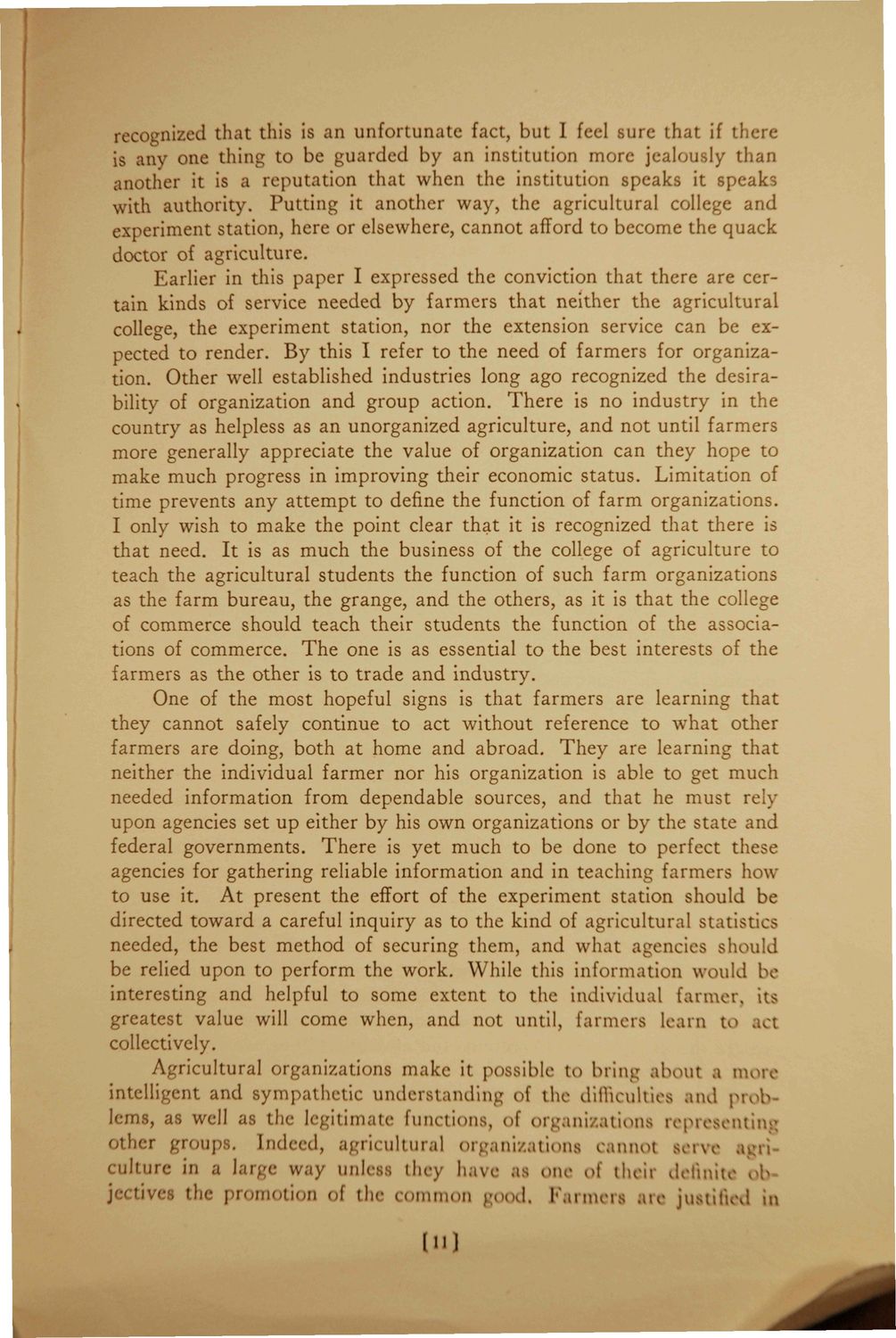| |
| |
Caption: Booklet - Agricultural College and Experiment Station (1924)
This is a reduced-resolution page image for fast online browsing.

EXTRACTED TEXT FROM PAGE:
recognized that this is an unfortunate fact, but I feci sure that if tl is any one thing to be guarded by an institution more jealously than another it is a reputation that when the institution speaks it speak with authority. Putting it another way, the agricultural college and experiment station, here or elsewhere, cannot afford to become the quack doctor of agriculture. Earlier in this paper I expressed the conviction that there are certain kinds of service needed by farmers that neither the agricultural college, the experiment station, nor the extension service can be expected to render. By this I refer to the need of farmers for organization. Other well established industries long ago recognized the desirability of organization and group action. There is no industry in the country as helpless as an unorganized agriculture, and not until farmers more generally appreciate the value of organization can they hope to make much progress in improving their economic status. Limitation of time prevents any attempt to define the function of farm organizations. I only wish to make the point clear that it is recognized that there is that need. It is as much the business of the college of agriculture to teach the agricultural students the function of such farm organizations as the farm bureau, the grange, and the others, as it is that the college of commerce should teach their students the function of the associations of commerce. The one is as essential to the best interests of the farmers as the other is to trade and industry. One of the most hopeful signs is that farmers are learning that they cannot safely continue to act without reference to what other farmers are doing, both at home and abroad. They are learning that neither the individual farmer nor his organization is able to get much needed information from dependable sources, and that he must rely upon agencies set up either by his own organizations or by the state and federal governments. There is yet much to be done to perfect these agencies for gathering reliable information and in teaching farmers how to use it. At present the effort of the experiment station should be directed toward a careful inquiry as to the kind of agricultural statistics needed, the best method of securing them, and what agencies should be relied upon to perform the work. While this information would be interesting and helpful to some extent to the individual fanner, its greatest value will come when, and not until, farmers 1 un to act collectively. Agricultural organizations make it possible to bring about a more intelligent and sympathetic understanding of the difficulties and prob lems, as well as the legitimate functions, of o\ mi/.ations representing other groups. Indeed, agricultural organizations cannot serve Culture in a huge way unless th. have as one of their deituit jectives the promotion of the Common I. Farmers arc justified in mi
| |